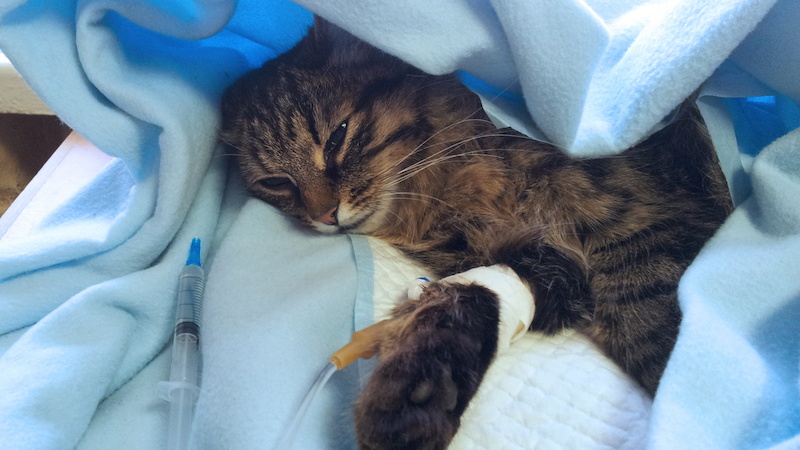For most surgical procedures, anesthesia is required. We utilize the safest available anesthetics to provide an extra margin of safety, especially for our older or high-risk patients.
Today’s modern anesthetic monitors have made surgery much safer than in the past. We do a thorough physical exam on your pet before administering anesthetics, to ensure that a fever or other illness won’t be a problem. Pre-anesthetic blood testing is important in reducing the risk of anesthesia. Every pet should have blood testing before surgery to ensure that the liver and kidneys can handle the anesthetic. Even apparently healthy animals can have serious organ system problems that cannot be detected without blood testing. If there is a problem, it is much better to find it before it causes anesthetic or surgical complications. Animals that have minor dysfunction will handle the anesthetic better if they receive IV fluids during surgery. If serious problems are detected, surgery can be postponed until the problem is corrected.
While under anesthesia, your pet is continuously monitored by both staff and specialized anesthesia monitoring technology. Your pet’s blood pressure, heart rate, respiratory rate, body temperature, and oxygen level are all tracked during surgery. Further, we adjust the amount and type of anesthetic used depending on the health of your pet. We also use a temperature-controlled operating table to assist in maintaining constant body temperature during the procedure.
Contact us today to set up an appointment.

